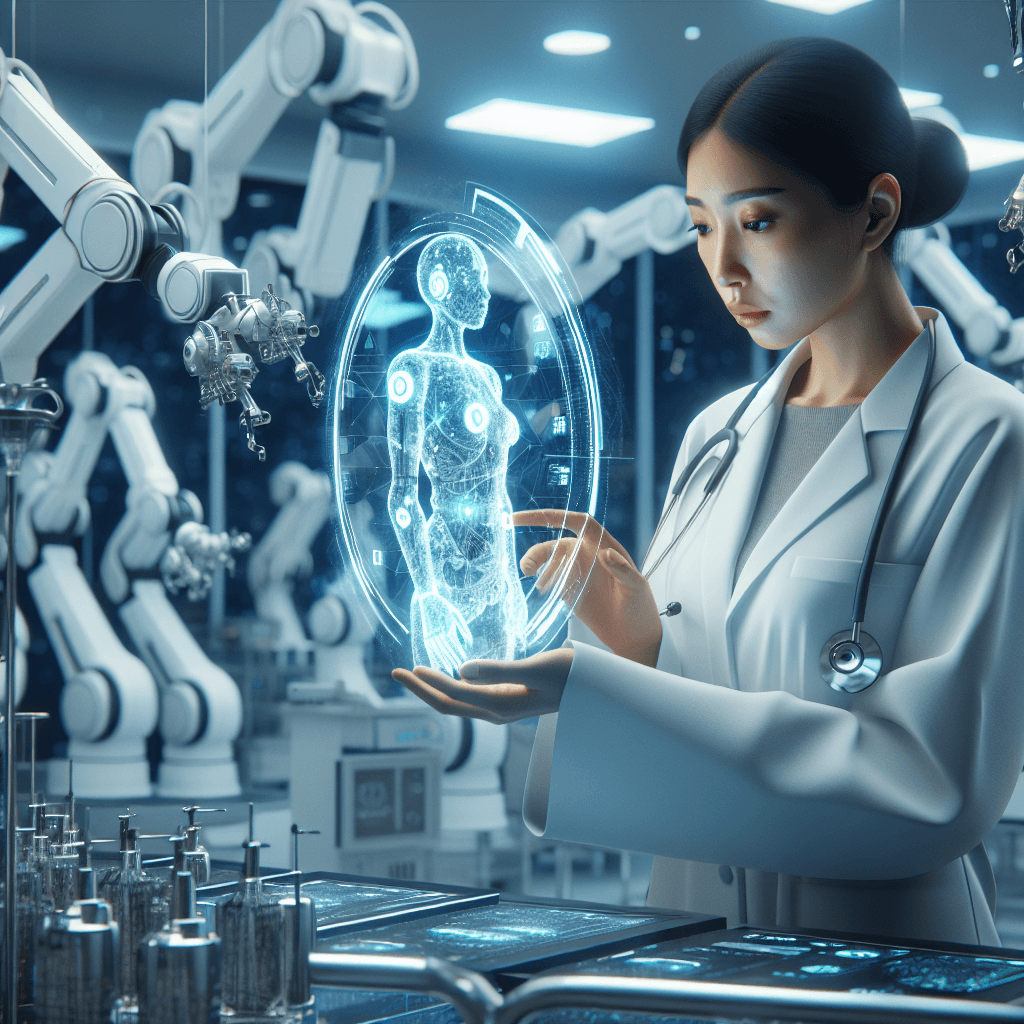The Transformative Power of AI in Modern Healthcare Artificial intelligence is no longer a futuristic concept confined to science fiction. In today’s medical landscape, AI

The Transformative Power of AI in Modern Healthcare
Artificial intelligence is no longer a futuristic concept confined to science fiction. In today’s medical landscape, AI technology is actively reshaping patient care, diagnostics, and healthcare operations. AI healthcare advancements promise to improve accuracy, efficiency, and accessibility like never before. From early disease detection to personalized treatment plans, AI is rapidly becoming an indispensable tool for healthcare professionals worldwide. This shift challenges traditional methods and opens new horizons for improving health outcomes on a massive scale.
How AI Healthcare is Enhancing Diagnostics and Treatment
Healthcare providers rely heavily on precise diagnostic tools to deliver effective treatments. AI healthcare systems excel in processing vast amounts of medical data, identifying patterns beyond human capability.
Advanced Imaging and Data Analysis
– AI algorithms analyze medical images such as X-rays, MRIs, and CT scans with remarkable accuracy.
– Deep learning techniques enable early detection of diseases like cancer, often spotting anomalies missed by human eyes.
– AI-assisted radiology is reported to reduce diagnostic errors, improving patient prognoses.
Personalized Medicine Through AI
– AI healthcare tools customize treatment plans by analyzing an individual’s genetics, lifestyle, and medical history.
– Machine learning models predict how patients may respond to specific medications, minimizing trial-and-error prescriptions.
– This approach enhances treatment efficacy and reduces adverse reactions.
Streamlining Healthcare Operations with AI Solutions
Beyond clinical care, AI is streamlining administrative and operational tasks, freeing up valuable time for healthcare staff.
Automating Routine Tasks
– AI-powered chatbots handle patient scheduling, inquiries, and follow-ups, providing 24/7 assistance.
– Automated documentation and coding reduce paperwork, limiting human errors and speeding up billing processes.
Optimizing Resource Management
– Predictive analytics forecast patient admissions, ensuring optimal staffing and resource allocation.
– Hospitals leverage AI to manage supply chains efficiently, reducing waste and operational costs.
Improving Patient Engagement and Accessibility with AI
AI healthcare technologies also make healthcare more accessible and engaging for patients worldwide.
Virtual Health Assistants
– AI-driven virtual assistants guide patients through symptom checks, medication instructions, and health monitoring.
– These tools support chronic disease management and encourage medication adherence.
Overcoming Geographical Barriers
– Telemedicine platforms equipped with AI enhance remote consultations and diagnostics.
– Rural or underserved communities gain access to high-quality healthcare via AI-based interventions, bridging gaps in care delivery.
Addressing Challenges and Ethical Considerations in AI Healthcare
While promising, AI healthcare adoption comes with challenges that must be carefully managed.
Data Privacy and Security
– AI systems require vast amounts of sensitive health data, raising concerns about patient confidentiality.
– Robust cybersecurity measures and regulations like HIPAA in the US are critical to protect data integrity.
Bias and Equity in AI Algorithms
– AI models trained on limited datasets may perpetuate biases, affecting diagnosis and treatment equity.
– Continuous auditing and diverse data sources are essential to ensure fairness in AI healthcare applications.
The Road Ahead: Preparing for an AI-Driven Healthcare Future
Healthcare systems, providers, and patients must proactively embrace AI healthcare innovations to unlock their full potential.
– Investing in training programs equips clinicians with necessary AI literacy.
– Collaborative efforts between technologists, clinicians, and policymakers expedite responsible AI integration.
– Staying informed about evolving AI healthcare trends enables individuals to make better health decisions.
Numerous credible organizations showcase ongoing AI healthcare research and breakthroughs, including the [World Health Organization](https://www.who.int/).
The integration of AI healthcare tools heralds a new era where proactive, precise, and patient-centered care is within reach. Staying ahead means adopting these technologies thoughtfully and ethically to maximize benefits.
Prepare yourself and your healthcare environment for this transformation—embrace AI today and be part of the future.
Ready to explore how AI healthcare can benefit your practice or personal health journey? Visit khmuhtadin.com to connect with experts and access tailored guidance on leveraging AI in healthcare.